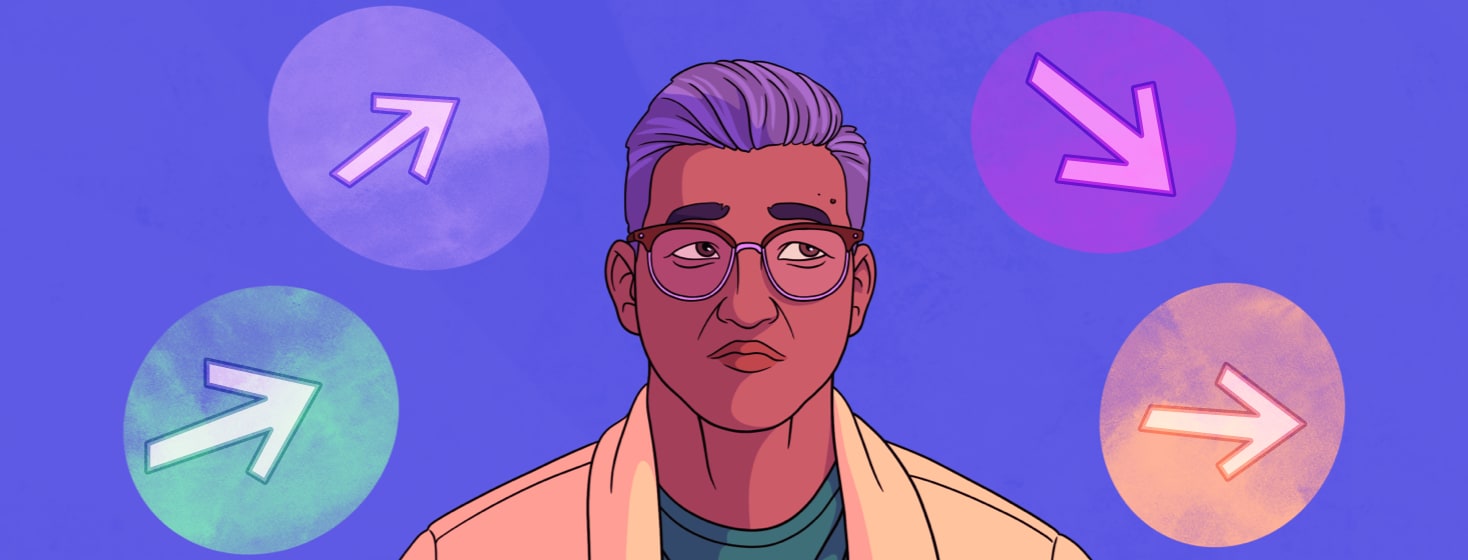From Acceptance to Action
I have been facilitating a prostate cancer support group for several years, and I feel like each meeting brings me closer to owning and understanding my relationship with my cancer. The journey, which for me is almost 3 decades of treatment and relapse, has forced me to view life and health through a much larger and clearer lens.
Things I've learned from my cancer journey
As I age and more of my life experience exists in the past, I feel the losses and the gains have come into balance. In part, because I've been able to take advantage of the incredible advances in prostate cancer care that have allowed me to keep living a quality life. In addition, the privilege of writing about my cancer journey and mentoring dozens of others through theirs has been the icing on my cake of gratitude.
Through observations of my group and remembering my own journey, I've come to identify three general categories or stages of acceptance and action. I'm convinced that if we navigate through these stages and become full partners in managing our own care, we can hopefully achieve the best outcomes possible!
How to move from acceptance to action
First, get through the shock and denial
First, there is the shock and denial stage. This is widely variable depending on the knowledge and general personality of the individual.
Retired and volunteering, I usually encounter people in this first stage when they call to ask about our group sessions or on their first or second visit to our support group. I suspect and hope that their reaching out or attendance at the group already points to their desire to get some help to relieve their fear and anxiety. I always try to normalize their initial reaction to their diagnosis and assure them of the help and resources available if they will allow.
This is where a support group and resources like ProstateCancer.net become so valuable. Nothing seems to successfully launch people out of this stage better than hearing the stories of others who are almost always in the process of living their best lives despite their diagnosis.
Then bewilderment
The second stage is what I call bewilderment. In this stage the person has talked with their primary physician or urologist and is trying to figure out whether to simply accept early advice and leave their care in the hands of the medical establishment, or to become more involved in the decisions around their cancer treatment.
This stage can lead in one of two directions. Either the patient begins to realize how complex and rapidly advancing prostate cancer care can be and jumps on the information train; or, after an initial dive into information on the internet, books, advice of friends, etc., they regress and become less involved and more passive.
We see this in the group when a new member is eager and excited with their first and possibly their second visit and then stops coming. Once contacted, it is pretty easy to tell what is happening. They either share their decisions and plan of care or start apologizing about missing group because they are just too busy.
Then start planning
The third stage is engagement and planning. Assuming they don't give up control and do decide to be a more active participant, the patient may look forward to what outcome they want to achieve. Because this generally is a slow-growing cancer, some individuals may have the luxury of time to lay out this plan.
A doctor at the Mayo Clinic gives a lecture that outlines a Do It Yourself (DIY) method for approaching one's cancer. This DIY method starts with a basic understand of how prostate cancer grows and spreads and a realization that there are now tools and treatments that can be used to slow or, depending on the case, potentially even stop its progress.
With a well-researched DIY plan, we have a template to compare against the flood of advice we are receiving. We can question the use of all the available tools and be assured that our treatment team is really up on the latest information and is actively incorporating our staging, tests, and past and current therapies. Is our DIY plan in sync with the treatment team? If not, can you more comfortably reach agreement on how to all be on the same page?
Finding prostate cancer early is important
Nothing is more inspiring than the stories told in support groups or online by those who have actively engaged in this long journey.
But as encouraging as many of these success stories are, I still worry that we are not getting enough men to even be screened and tested. The earlier we find the cancer, take control, and build a plan, the better the outcome may be. The take-away message is simple: engage and keep engaging. Build a blueprint for your journey and follow it. Every effort you make can yield a positive return, believe me!

Join the conversation